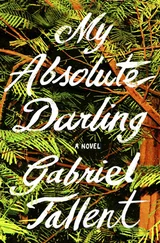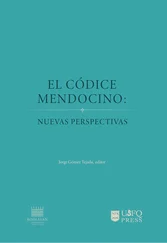He had to think back. “Garance and Lizzie.”
“You know them?”
“I was surprised to run into them there, but Lizzie’s doing a book, portraits of writers taken from behind. And they just found out Garance is pregnant. Try getting a word in edgewise.”
My expression must have amused him. He said, “You have lesbians in New Mexico, right?”
I hadn’t caught my flight. Instead we made love in the hotel room I hadn’t wanted him to see, since I had left it a mess. “Was this all you?” he asked, of the clothes strewn everywhere, and it was partly from embarrassment that I lifted his shirt and slid a hand inside. When we woke it was early afternoon and the implications of my having not gone home became real to me. My husband had a daylong meeting that prevented his picking me up at the airport; at least he had been spared the ordeal of standing there scrutinizing the disembarking crowd, wondering what could possibly have kept me from making my flight. In five years of marriage we had barely been apart. I imagined him at a conference table among his colleagues in their suits and ties, drawing airplanes in the margins of his legal pad. At our small Ohio college he had majored in art, and when a friend of his father’s offered him a position in a Santa Fe firm, he had surprised us both by accepting. I had been selfishly relieved that one of us was able to pay the rent on our Upper Canyon Road adobe. He didn’t really have it, he said, and I said he couldn’t know that, not now at the very beginning of trying. In an unfinished painting I reclined in our claw-foot tub, paperback book held nearsightedly close, bathwater strewn with lopped-off wildflower heads.
I had feared finding all of California alienatingly new, but where he lived was a comradely neighborhood of mostly neglected Victorians, none very fanciful, shaded by trees as old as they were. His place was the guest cottage—“So it’s small,” he cautioned, on the drive over — belonging to a Victorian that had decayed past any hope of renovation. The old house had eventually been replaced by a single-story studio-apartment building, and once he bought the place, these rentals became the most reliable part of his income. Whenever he could, he avoided teaching, he said. His minding about precariousness (if it was) was embarrassing. It was proof that he was older . Even if they could have, no one I knew in New Mexico would have wanted to use the phrase reliable income in a sentence about themselves: jobs were quit nonchalantly, security was to be scorned. With the help of an architect friend — a former lover, he clarified as if pressed; and never do that, never renovate a house with someone you’re sleeping with — all that was stodgy and cramped had been replaced with clarity and openness, as much, at least, as the basically modest structure permitted. This preface sounded like something recited fairly often. The attic had been torn out to allow for the loft bedroom, its pitched ceiling inset with a large skylight, its wide-planked floor bare, the bed done in white linen. The white bed was like his saying reliable income —it was the opposite of daring. No man I had ever known, if it had even occurred to him to buy pillowcases and sheets instead of sleeping on a bare mattress, would ever have chosen all white. Sleeplessness and guilt were catching up with me, and there was the nagging feeling any house tour gives, of coercing praise. I was irritated that in these circumstances, to me costly and extraordinary, the usual compliments were expected. “Beautiful light,” I said. The narrow stairs to the loft were flanked by cleverly fitted bookshelves, and more bookshelves ran around the large downstairs living room, onto which the galley kitchen and bathroom opened, and on another wall were doors leading to his study and the guest bedroom that would be mine, because, he said apologetically, he couldn’t sleep through the night with anyone in bed with him — it wasn’t me; he’d never been able to. Would that be all right? Of course, I said. I sat down on the edge of the twin bed. I can get the money somehow, I can fly home tomorrow. Even as I decided that, he sat down beside me. “When I think you could have gotten on that plane. I would be wondering what just hit me and how I could ever see you again.” In that room there was a telephone, and he left me alone with it.
He had his coffee shop, and when he was done working, that’s where he liked to go — at least, before me that’s where he’d gone. Time spent with me, in bed or talking, interfered with the coffee shop, and with research in the university library and his circuit of bookstores and Saturday games of pickup basketball, but for several weeks I was unaware that he had altered his routines for my sake. From the congratulatory hostility of his friends, I gathered that women came and went. “Your free throw’s gone to shit,” said Billy, owner of the shabby, stately Victorian next door whose honeysuckle-overrun backyard was a storehouse of costly toys — motorcycles, a sailboat. “How I know you have a girlfriend.” I would have liked to talk to someone who knew him — even Billy, flagrantly indiscreet — about how I was faring in my anxious adaptation to his preferences, whether I was getting anything wrong. Other women had lived with him: What had they done while he was writing in the morning? How had they kept quiet enough? One was a cellist — how had that worked? His writing hours, eight to noon, were nonnegotiable. If he missed a day, his black mood saturated our world. But this was rare.
The check came, for the story. Forwarded by my husband, whom I called sometimes when I was alone in the cottage, and blue. “You can always come home, you know,” my husband said, and I bit down on the question Why don’t you hate me? He knew me well. “Look,” he said. “People get into trouble. We get in over our heads. It’s not only you.”
The renovated cottage was close enough to the university that, days when he was teaching, he could ride his bicycle. Covertly, I began to hold it against him that he was honoring his responsibilities, meeting his classes, having conversations about weather and politics. My syllogism ran: what love does is shatter life as you’ve known it; his life isn’t shattered; therefore he is not in love. Of the two of us, I consoled myself with the idea that I was the real lover. But, really, why did it matter so much? The question of who was more exposed emotionally would have struck him as crazy, my guess is. But either my willingness to tear my life apart had this redeeming authenticity, or the pain I was causing my husband was callously — even violently — pointless.
By now I had learned something about the women before me, including the Chinese lover whose loss he still wasn’t reconciled to, though it had been years. I stole her picture and tucked it into Middlemarch , the only book in this house full of his books that belonged to me, and when he admitted to not liking Eliot much I was relieved to have a book which, by not mattering to him, could talk confidentially to what was left of me as a writer, the little that was left after I was, as I believed I wanted to be, stripped down to skin and heartbeat and sex, never enough sex, impatient sex, adoring sex, fear-of-boredom sex.
The immense sanity of Middlemarch made it a safe haven for the stolen photograph. Whenever I went back to Eliot’s novel, I imagined the magnanimous moral acuity with which the narrator would have illumined a theft like mine, bringing it into the embrace of the humanly forgivable while, at the same time — and how did Eliot manage this? — indicting its betrayal of the more honorable self that, in her narrator’s eyes, I would possess. But I didn’t go back often; sex and aimless daydreaming ate up the hours I would usually have spent reading, and when I went up to the loft, I left the book behind — I didn’t want him noticing it. He had a habit of picking up my things and studying them quizzically, as if wondering how they had come to be in his house, and if he picked up Middlemarch there was a chance the photo would slip out. If I fell asleep in his bed after sex he would wake me after an hour or two, saying Kid, you need to go downstairs. On the way down I ran my fingers over the spines of the books lining the stairwell. If you opened one it would appear untouched; he recorded observations and memorable passages in a series of reading notebooks.
Читать дальше












